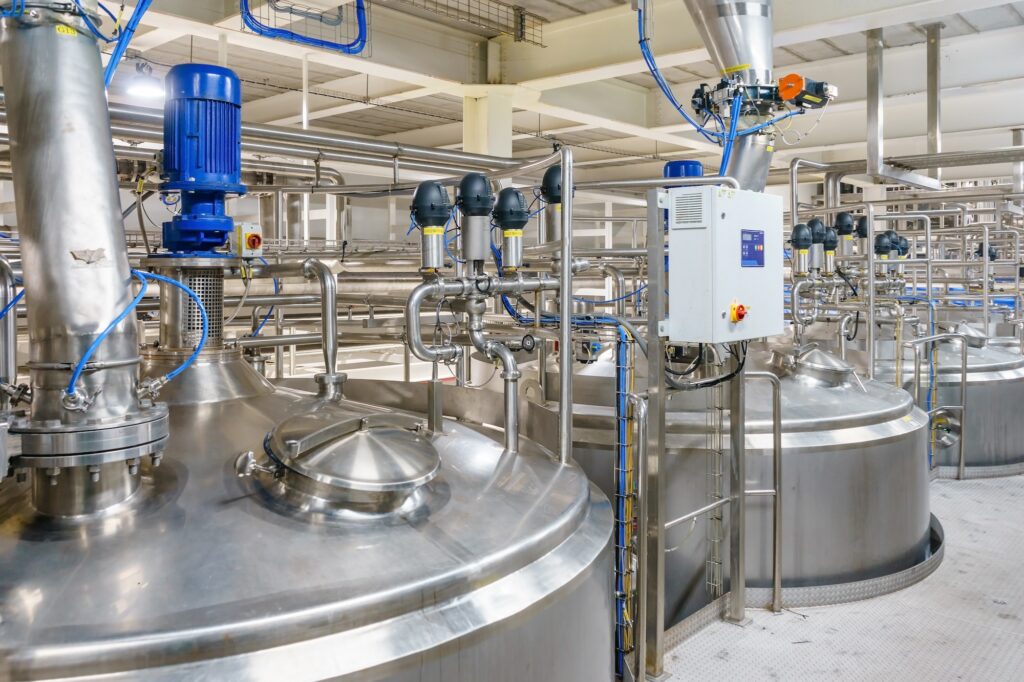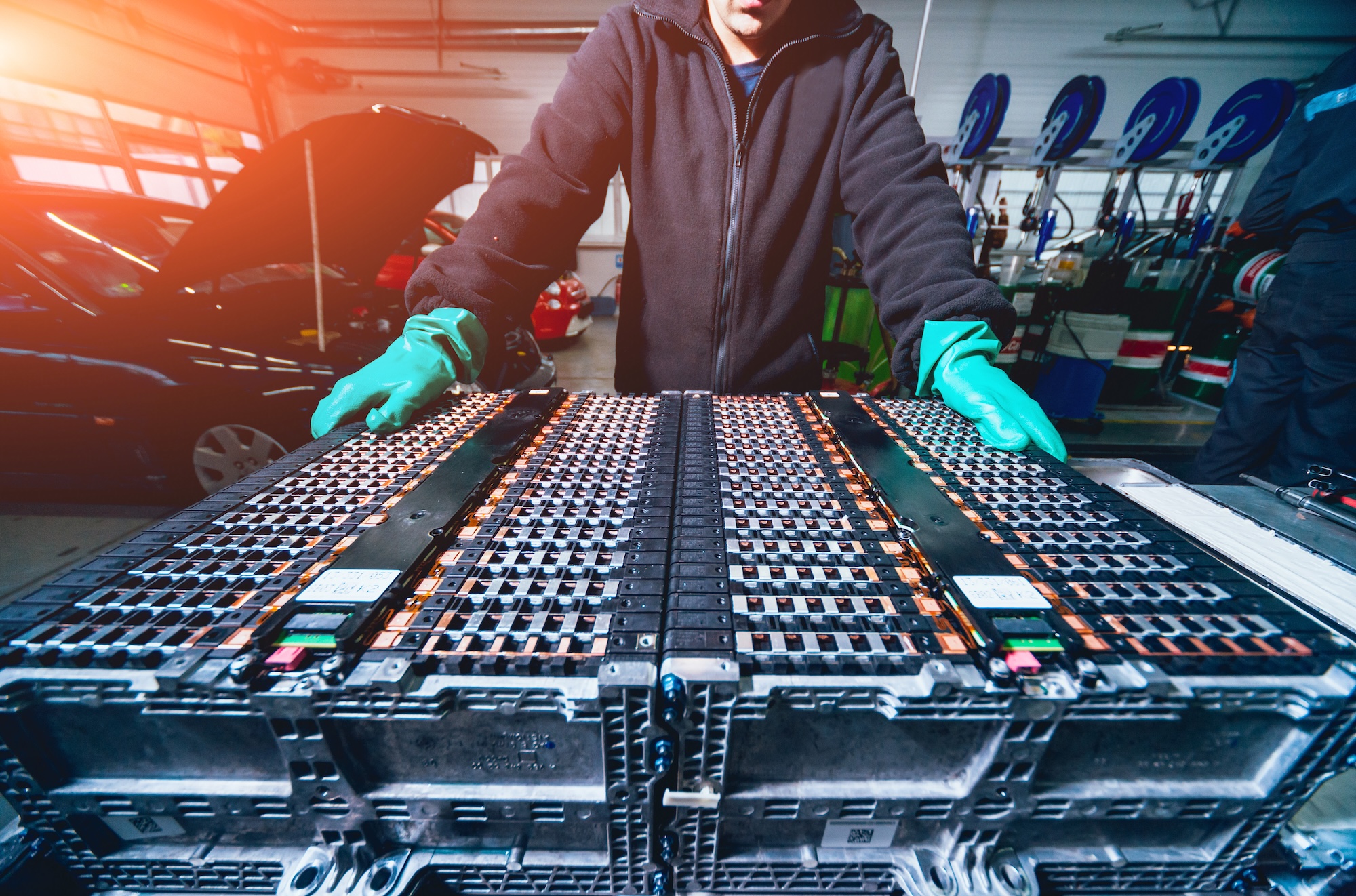Digital Transformation in Specialty Chemicals: Embracing Industry 4.0

The specialty chemicals industry, known for its complexity and precision, has always been at the forefront of innovation. From the development of advanced materials to the creation of unique formulations, this sector has consistently pushed the boundaries of what’s possible. Today, as we stand on the brink of the Fourth Industrial Revolution, or Industry 4.0, the specialty chemicals industry is once again poised for transformation. This revolution is characterized by the integration of digital technologies such as Artificial Intelligence (AI), the Internet of Things (IoT), and Big Data into production processes, supply chains, and quality control systems. At Reade, we are actively integrating these digital technologies into our operations to enhance our ability to serve our clients. From streamlining our supply chains to ensuring lot-to-lot consistency, our commitment to embracing Industry 4.0 enables us to continue delivering quality and reliability.
The Role of AI in Specialty Chemicals
Artificial Intelligence (AI) is no longer a futuristic concept; it’s a reality that is reshaping industries across the globe. In the specialty chemicals sector, AI is being leveraged to optimize production processes, enhance product quality, and predict market trends.
One of the most significant impacts of AI is in process optimization. Traditional chemical production methods often involve trial-and-error approaches, where finding the right conditions for a reaction can be time-consuming and resource-intensive. AI, with its ability to analyze vast amounts of data and identify patterns, can drastically reduce this time by predicting the optimal conditions for chemical reactions. This not only accelerates production but also reduces waste, leading to more sustainable operations.
Moreover, AI-powered predictive analytics are revolutionizing product quality control. By analyzing data from production processes in real-time, AI systems can detect anomalies and deviations from quality standards before they result in defective products. This proactive approach to quality control ensures that the final products meet the stringent requirements of the specialty chemicals industry, reducing the risk of costly recalls and enhancing customer satisfaction.
IoT: Connecting the Dots in Production and Beyond
The Internet of Things (IoT) is another cornerstone of Industry 4.0, and its impact on the specialty chemicals industry is profound. IoT refers to the network of physical devices—sensors, machines, and other objects—embedded with software and connectivity, enabling them to collect and exchange data. In a specialty chemicals production environment, IoT devices can monitor variables such as temperature, pressure, and humidity in real-time, providing a granular view of the production process.
This real-time monitoring allows for immediate adjustments to be made, ensuring that production stays within the desired parameters. For example, if a sensor detects that the temperature in a reactor is approaching a critical threshold, the system can automatically adjust the cooling mechanism to prevent an undesirable outcome. This level of control not only improves product consistency but also reduces energy consumption and operational costs.
Beyond production, IoT is also transforming supply chain management in the specialty chemicals industry. By providing end-to-end visibility, IoT devices enable companies to track raw materials, monitor inventory levels, and optimize logistics in real-time. This transparency helps in anticipating supply chain disruptions, allowing companies to respond proactively to issues such as delays or shortages. For Reade Advanced Materials, which relies on a global network of suppliers and customers, IoT is a game-changer in ensuring a smooth and efficient supply chain.
Harnessing Big Data for Strategic Decision-Making
Big Data is the fuel that powers AI and IoT. The specialty chemicals industry generates massive amounts of data from various sources—production processes, supply chains, customer interactions, and more. However, this data is only valuable if it can be analyzed and utilized effectively. This is where Big Data analytics come into play.
Big Data analytics allows companies to extract actionable insights from their data, leading to more informed decision-making. For instance, by analyzing historical production data, companies can identify trends and patterns that might not be apparent through traditional analysis. These insights can lead to improvements in efficiency, such as optimizing batch sizes or adjusting production schedules to minimize downtime.
In addition to process optimization, Big Data is also crucial for market analysis and customer relationship management. By analyzing data on customer preferences, purchasing patterns, and market trends, companies can tailor their product offerings to meet the specific needs of their customers. This level of personalization is increasingly important in the specialty chemicals industry, where customers often require bespoke solutions.
The Future of Specialty Chemicals in the Industry 4.0 Era
As digital transformation continues to gain momentum, the specialty chemicals industry must adapt to remain competitive. Companies that embrace AI, IoT, and Big Data are not only improving their operational efficiency but also positioning themselves as leaders in a rapidly evolving market.
For Reade Advanced Materials, the integration of these technologies is a natural extension of its long history of innovation. By leveraging the power of digital transformation, Reade is poised to continue its leadership in the specialty chemicals industry, delivering high-quality products and services to its customers for many more years to come.
Industry 4.0 is not just a buzzword; it represents a fundamental shift in how industries operate. For the specialty chemicals sector, this shift offers exciting opportunities to enhance production processes, improve product quality, and optimize supply chains. By embracing these changes, companies like Reade Advanced Materials are not only securing their future but also driving the entire industry forward into a new era of growth and innovation.


